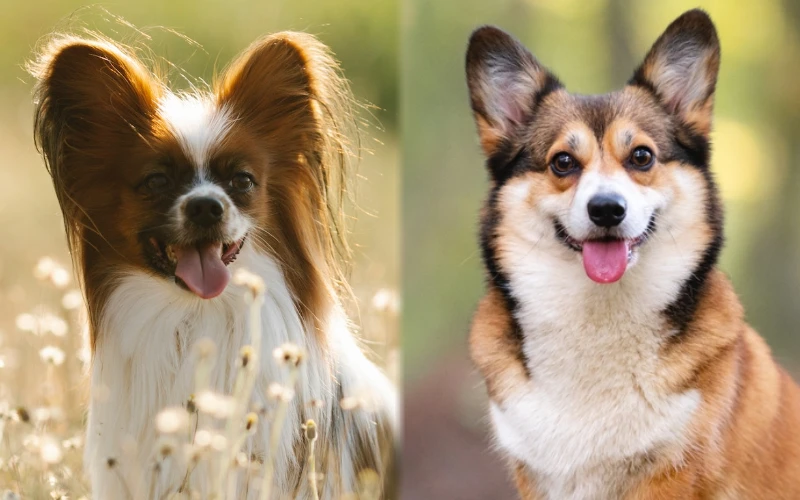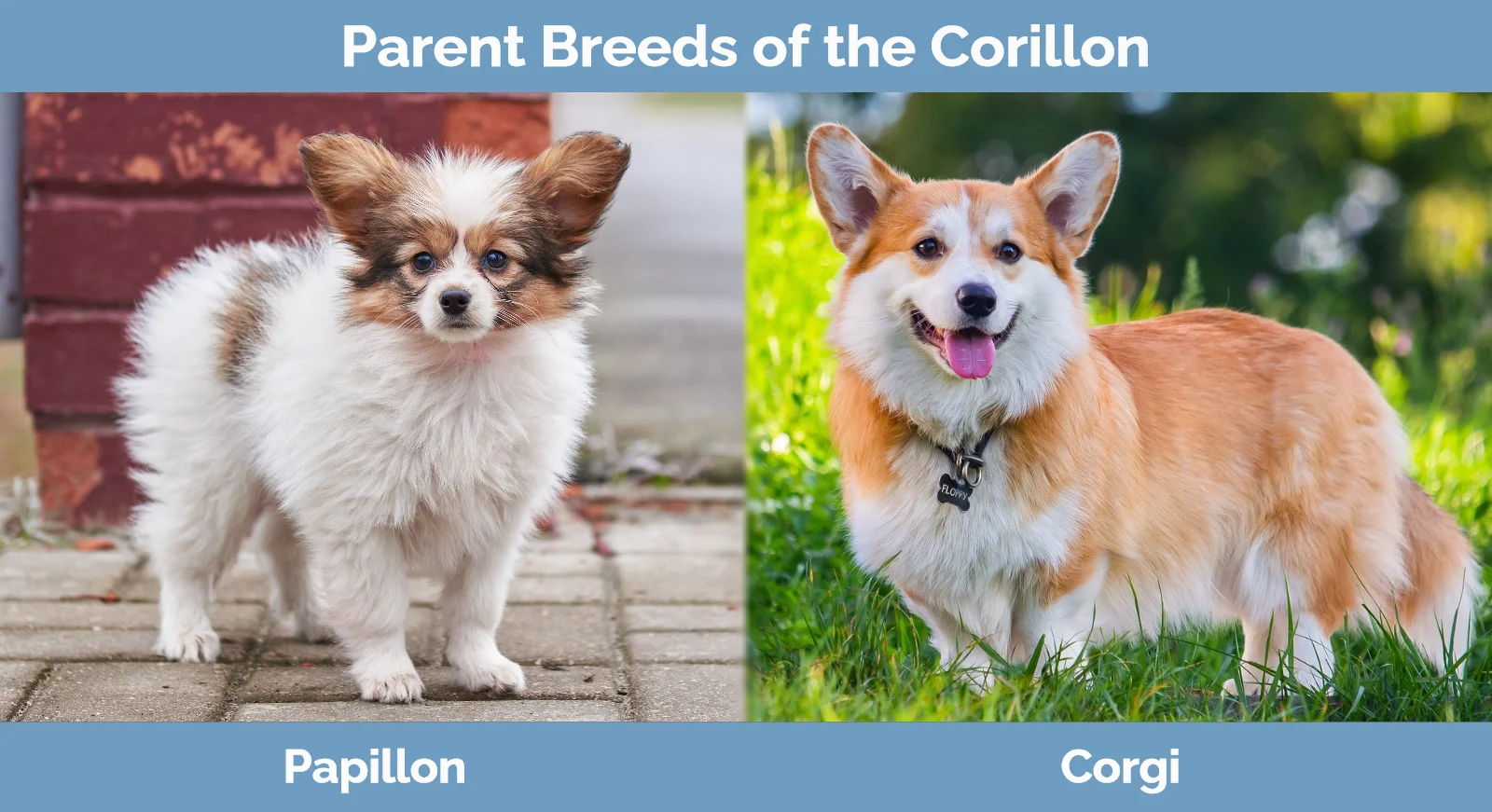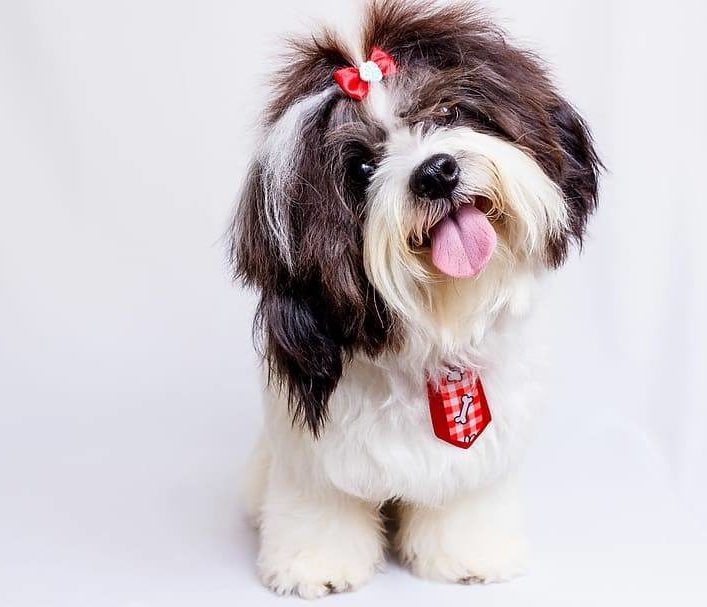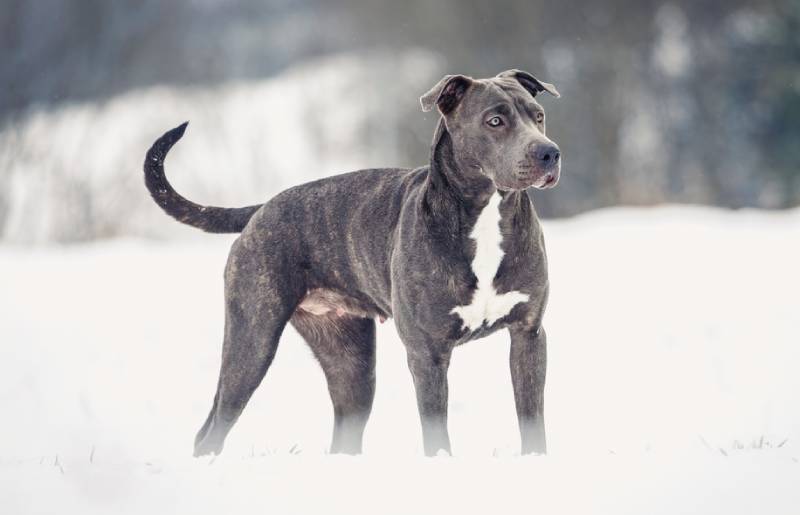Corillon (Corgi Papillon Mix): Pictures, Care Guide, Temperament & Traits
Updated on

Click to Skip Ahead
If you like small dogs, you should know about this fantastic dog breed: the Corillon. This is a mixed breed between the Pembroke Welsh Corgi and the Papillon. Corillons have gained popularity in recent years, and while they haven’t gotten formal recognition, they are still popular pet options for dog lovers across the world.
But what makes Corillons so unique? Do these dogs resemble their parents when it comes to their appearance and temperament?
If you’d like to know more about this stunning new breed, check out the rest of the article. We cover the most important information about Corillons, including their characteristics and temperament.
| Height: | 8–12 inches |
| Weight: | 10–30 pounds |
| Lifespan: | 12–15 years |
| Colors: | White, fawn, red, sable, brown, multicolor with white markings |
| Suitable for: | Singles, couples, families with kids, families with other pets |
| Temperament: | Loyal and loving, intelligent, friendly, social, affectionate |
The Corillon is a fairly newer dog breed representing a mix between the Papillon and the Pembroke Welsh Corgi. Both breeds are known for having loving and affectionate personalities and being good around people and kids, which is why Corillons make excellent pets and can easily adapt to all kinds of environments.
This generally low-maintenance breed doesn’t require much care. However, the particular traits of a Corillon may vary based on genetics. Some Corillons may resemble Papillons more, while others may have more Corgi in them.
Corillon Characteristics
Corillon Puppies
Corillon puppies inherit their appearance and traits from their parent breeds. Most of the time, the Corillon inherits their small body frame from the Papillon, but their body is elongated like a Corgi’s body. It’s also common for Corillons to inherit the Papillon’s butterfly-shaped ears, though they could be either pointed or rounded.
These puppies usually have short legs and almond-shaped eyes and can come in various colors with occasional white markings.

Temperament & Intelligence of the Corillon 🧠
Are These Dogs Good for Families? 👪
Corillons are excellent for families, as they are loving, loyal, affectionate, and intelligent. Since these dogs also have playful and fun personalities, they can be the perfect addition for families with young kids, as there will be plenty of opportunities for them to play, interact, and bond. They can also be great pets for elderly people, as they can provide them with companions without requiring much maintenance.
Generally speaking, the Corillon is ideal for anyone looking for a low-maintenance dog that has a lively personality and likes to spend time around humans.
Does This Breed Get Along With Other Pets?
Both parent breeds of Corillons (Pembroke Welsh Corgis and Papillons) are friendly animals, so if properly socialized from a young age, this mixed breed can get along and be friendly with other pets. That said, you should still be cautious when introducing your Corillon to another animal for the first time.
Things to Know When Owning a Corillon
Food & Diet Requirements 🦴
Your Corillon should get an adequate, well-balanced diet that contains high-quality ingredients in order to grow healthy and strong. Be sure to discuss their food with your veterinarian to ensure that it has all the ingredients that your Corillon needs for proper development.
The diet should also be appropriate for your Corillon’s life stage. If you have any concerns, ask your vet for improvement suggestions.
Exercise 🐕
Due to their small size, Corillons make excellent indoor pets. However, they still require regular exercise to grow healthy and strong. Due to their ancestry, these dogs are active and playful, which is why they thrive on physical activity.
Moderate exercise should be enough to keep these dogs healthy and maintain their weight. Anything from short walks to jogs and playtime can keep your Corillon active every day.
Training 🎾
Training Corillons is usually easy, though this part of the breed’s care can vary based on their genetics. Corillons that resemble Papillons more when it comes to their temperament will be easier to train, as Papillons are usually eager to please their owners. Conversely, Corillons that resemble Corgis more might be more stubborn and have a mind of their own.
Still, with dedication and patience, it shouldn’t be difficult to train any Corillon. Just ensure that you start the training early enough (when your puppy is around 7 weeks old.)
Grooming ✂️
Corillons are generally low-maintenance dogs, much like their parent breeds. These canines can have distinctive coats depending on their parents. Regardless of their coat type, all Corillons should look neat with weekly brushing and monthly bathing.
This dog will also require regular dental and nail care and occasional ear and eye checks to ensure that everything is in good shape.
- See Also: 11 Best Dry Dog Shampoos
Health and Conditions ❤️
Generally speaking, Corillons are healthy dogs that can have a decent lifespan of 12–15 years. However, like all other dog breeds, they are susceptible to several health problems, mainly the ones that their parents are also prone to.
Here is a list of possible health problems that Corillons may experience in their lifetime.
- It’s possible for Corillons to experience a luxating patella, which is a problem that commonly affects Papillons. This condition causes the dog’s kneecap to fall out of place. While most responsible breeders screen for this health problem, it’s still important to know that such an issue may happen. Luxating patella is usually not a painful condition, but it may lead to other injuries, which is why it’s best to take your dog to the vet if you suspect this issue.
- Elbow and hip dysplasia are common health problems for Corillons, especially since these can be inherited from both parent breeds. Dysplasia causes your dog’s joints to develop improperly, reducing their mobility and causing further health problems, such as arthritis. Corillons suffering from elbow or hip dysplasia may have issues standing up or lying down or may generally appear stiffer than usual.
- Corillon dogs are susceptible to dental problems, particularly periodontal disease. To prevent possible dental issues, be sure to provide proper dental care and regular cleanings.
Male vs. Female
The female and male versions of this breed are fairly similar when it comes to their personality and appearance. The only difference is that the male Corillons are typically heavier and larger than the females.
2 Little-Known Facts About the Corillon
1. The Corillon Is Still Not an Officially Recognized Dog Breed
The Corillon is still considered a newer dog breed, so they are not officially recognized by many of the most well-known dog clubs and associations, such as AKC. However, since the popularity of this breed is growing rapidly, we are optimistic that these stunning canines will be officially recognized in the upcoming years.
2. Corillons Do Have Some Sort of Formal Recognition
While well-known dog associations don’t accept the Corillon as a separate dog breed, several other clubs have recognized these dogs. Institutions that accept this dog breed include:
- Dog Registry of America, Inc.
- Designer Dogs Kennel Club
- International Designer Canine Registry®
- American Canine Hybrid Club
Final Thoughts
Corillons are small, interesting dogs with perky, lively personalities. These canines are extremely affectionate, loyal, and playful, which is why you’ll often find them happily interacting with other animals and humans. Due to their loving nature, Corillons can easily fit into any type of family and adapt to all kinds of environments, which is why these dogs can make excellent pets.
Featured Image Credit: Left – Blue Bird, Pexels | Right – Jus_Ol, Shutterstock













